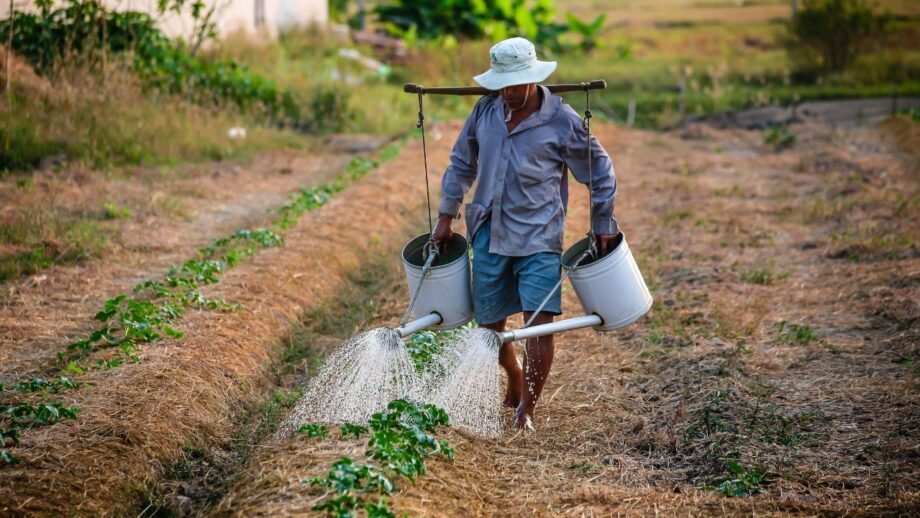The agricultural sector is undergoing a revolution, and at the heart of this transformation lies precision agriculture. As global demands for food increase and environmental concerns become more pressing, the future of farming is being reshaped by technological advancements. The future of farming: how precision agriculture is transforming the industry is no longer a theoretical conversation but an active shift that’s changing the way farmers operate today.
What is Precision Agriculture?
Precision agriculture refers to the use of technology to monitor and manage fields and crops in a more efficient and targeted manner. This involves using GPS, sensors, drones, data analytics, and robotics to ensure that resources such as water, fertilizers, and pesticides are applied in the right amounts and at the right time. This tailored approach not only optimizes yields but also minimizes waste, helping farmers meet increasing food demands while reducing their environmental footprint.
The Role of Technology in the Future of Farming
The future of farming relies heavily on advancements in technology. Precision agriculture is one of the main drivers, but how exactly does it work? Technologies such as artificial intelligence (AI), machine learning (ML), and the Internet of Things (IoT) are making it possible to collect vast amounts of data from the field, analyze it in real-time, and make informed decisions.
Drones and Satellites: Equipped with cameras and sensors, drones and satellites allow farmers to monitor crop health, detect diseases early, and assess soil conditions. This aerial view offers a comprehensive understanding of the field, enabling better decision-making.
GPS-guided Tractors: GPS-guided tractors enhance the accuracy of planting, watering, and fertilizing. With precision technology, farmers can reduce overlaps and wasted resources, maximizing both efficiency and sustainability.
Soil Sensors: Sensors embedded in the ground monitor soil moisture, temperature, and nutrient levels. Farmers can apply water and fertilizers only when needed, reducing resource consumption and promoting healthier crop growth.
Benefits of Precision Agriculture
The adoption of precision agriculture is ushering in a more sustainable and productive future for farming. Some of the key benefits include:
1. Increased Crop Yields
By optimizing planting and applying the right amount of water, fertilizers, and pesticides, farmers can increase their crop yields significantly. The ability to monitor each section of the field ensures that every part is used to its fullest potential.
2. Reduced Costs
Precision agriculture reduces waste, which in turn lowers input costs. Farmers no longer have to overuse resources such as water or fertilizers. By applying them in a targeted manner, they can achieve better results with fewer resources.
3. Sustainable Farming Practices
The future of farming hinges on sustainability. Precision agriculture helps reduce the environmental impact of farming by minimizing resource overuse, lowering emissions, and promoting healthier soil practices. This ensures long-term viability for the farming industry in the face of climate change and other environmental challenges.
Challenges Facing Precision Agriculture
While precision agriculture offers numerous benefits, there are challenges to widespread adoption:
High Initial Costs: The technology required for precision farming, such as drones, sensors, and GPS systems, can be expensive. For small-scale farmers, the upfront investment may be a significant barrier.
Data Management: Managing and interpreting the vast amount of data collected from precision farming technologies requires specialized knowledge. Farmers need to either learn how to use these systems effectively or hire skilled professionals, which can add to their costs.
Infrastructure: In many rural areas, access to reliable internet and electricity remains a challenge. Since precision agriculture often relies on cloud-based systems and real-time data processing, poor infrastructure can limit its effectiveness.
The Future of Precision Agriculture
The future of farming is bright, and precision agriculture is a key factor in this transformation. As the technology becomes more accessible and affordable, it will become a standard practice across farms worldwide. In the coming years, we can expect:
Increased Automation: From robotic weeders to fully autonomous tractors, the rise of automation will further reduce the need for manual labor and make farming more efficient.
Better Data Integration: As more farms adopt precision agriculture, data will become an even more valuable resource. This will lead to more predictive models, allowing farmers to anticipate issues before they arise and plan accordingly.
Sustainability Focus: As environmental concerns grow, precision agriculture will play a critical role in reducing farming’s carbon footprint and promoting sustainable practices.
Final Conclusion
The future of farming: how precision agriculture is transforming the industry is unfolding in real-time, with technology at the forefront of change. As farmers face growing pressures to feed a rising population while preserving the planet, precision agriculture offers a sustainable, efficient, and effective solution. Embracing these advancements will not only help improve food production but also pave the way for a more resilient agricultural industry.







